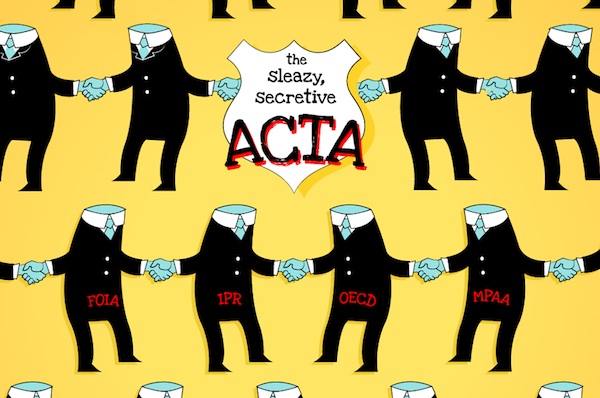WHEN DOZENS OF LOBBYISTS for massive corporations and entire governments spend years working on an international “agreement” behind closed doors while the majority of the world’s media ignores it, you know we’re in trouble.
Here’s what we know about how ACTA (Anti-Counterfeiting Trade Agreement) came about.
2006
Just now hearing about ACTA? It started back in 2006, when Stan McCoy, US chief negotiator for IPR (Intellectual Property Rights) enforcement, met with Japanese officials to introduce the concept. He described it as aiming “to set a ‘gold standard’ for IPR enforcement among a small number of like-minded countries, and which other countries might aspire to join.”

